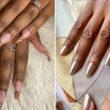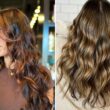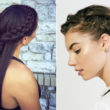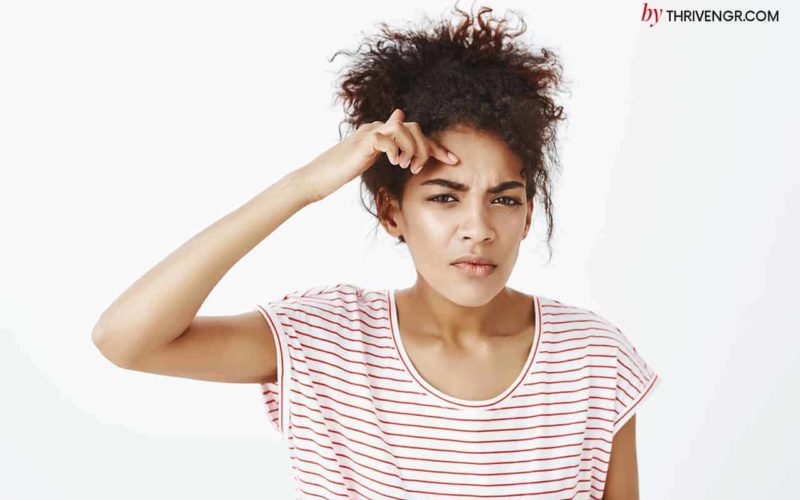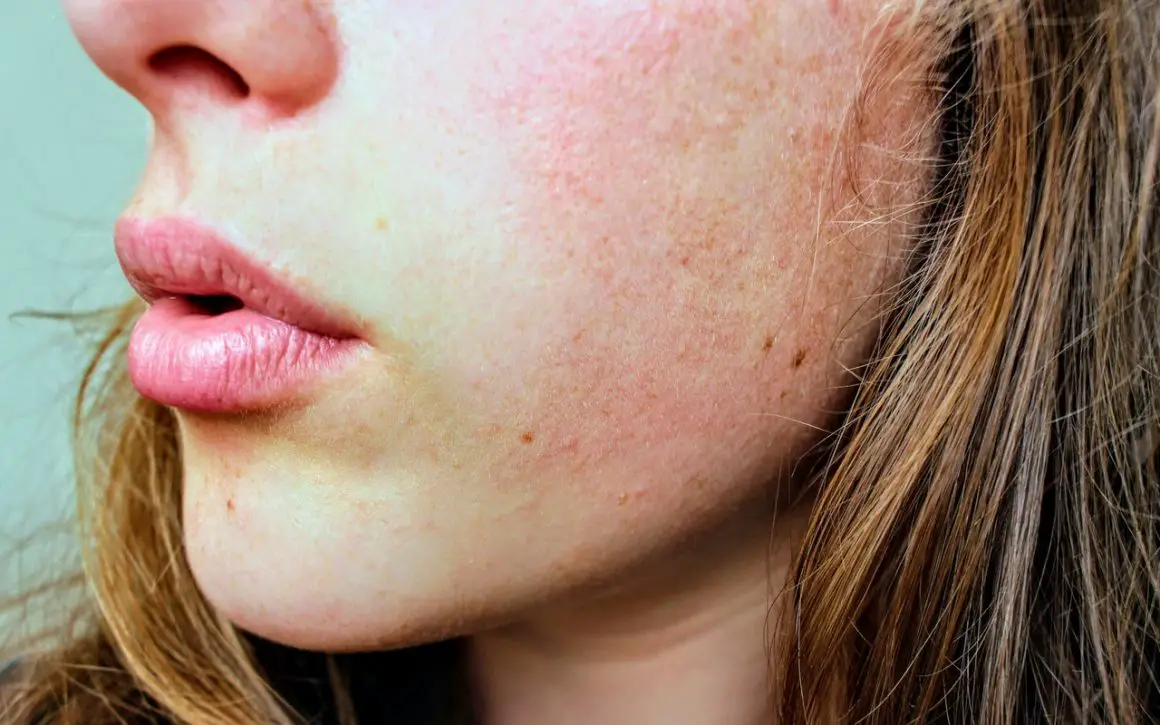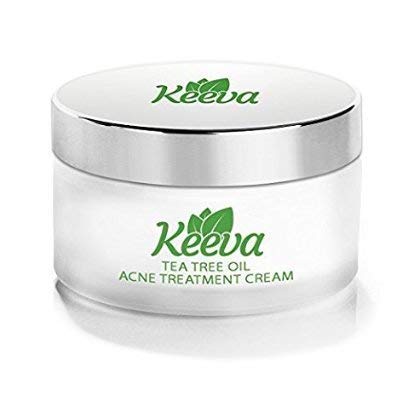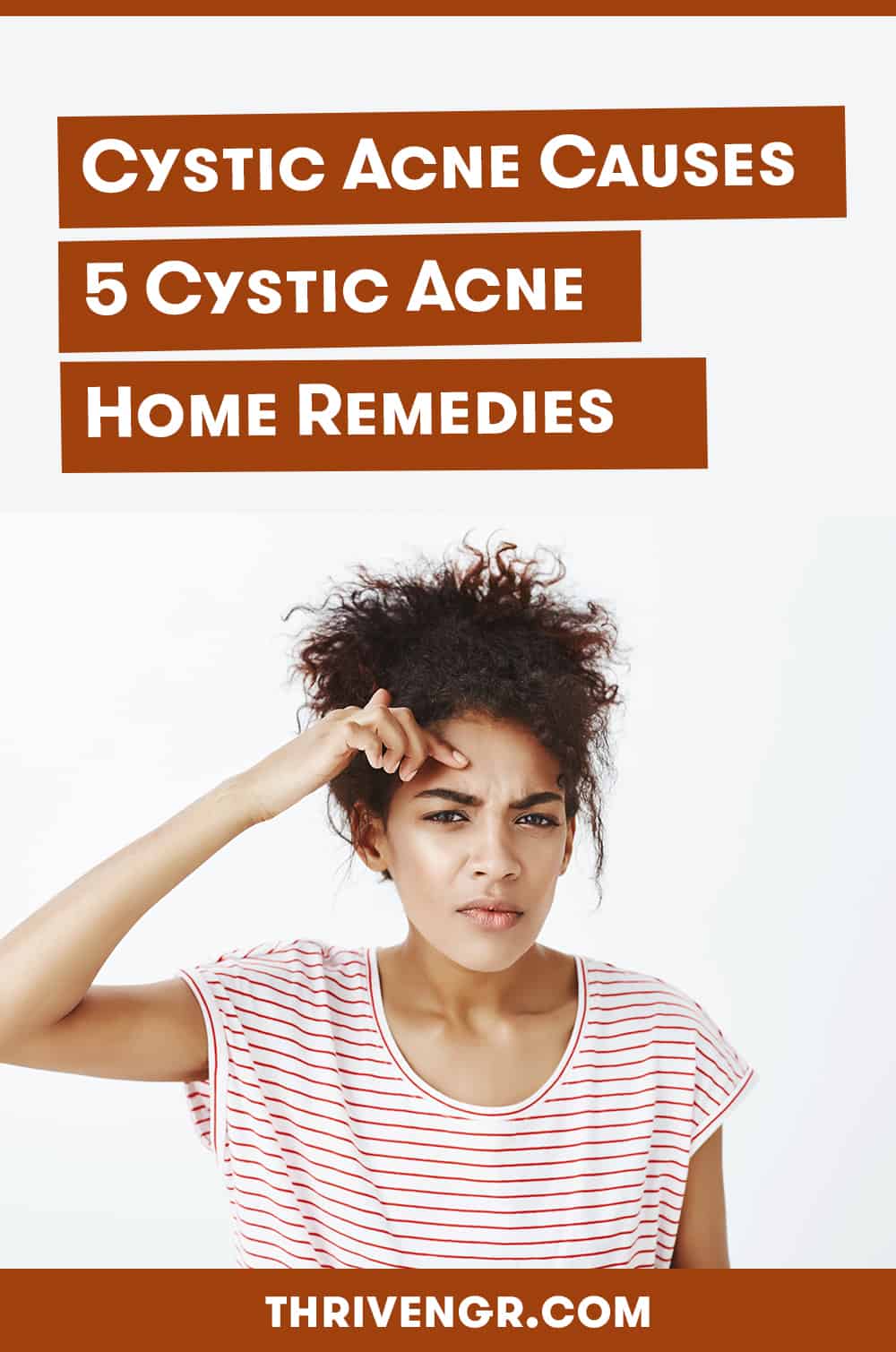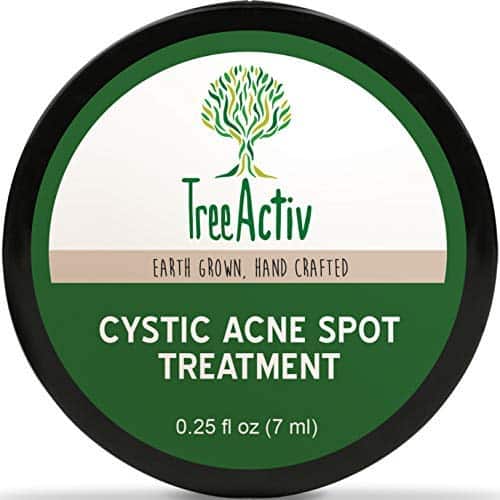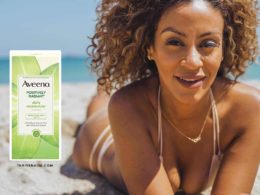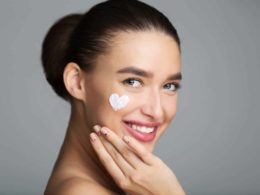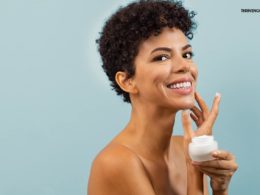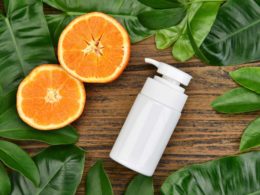Do you just ask yourself why am I breaking out on my cheeks or are you doubting if you have cystic acne or not? This post will make everything super clear to you.
Large painful breakouts that go deep into the skin are not easy to deal with. Cystic acne requires specialized treatment depending on its grading. This article will shed light on everything you need to know about this type of acne; from causes to cystic acne home remedies. Read on.
What is cystic acne?
Cystic acne is an inflamed, raptured type of acne. It is the severe form of acne that often affects a fewer population. This condition usually affects the face, chest, neck, and back.
Table of Contents
- What is cystic acne?
- What are the causes and risk factors for cystic acne?
- What signs and symptoms should I watch out for?
- How is cystic acne diagnosed?
- What are the treatments and medications for cystic acne?
- Are there home remedies for cystic acne?
- Helpful tips for dealing with cystic acne
- Getting rid of cystic acne scars
What are the causes and risk factors for cystic acne?
Your skin has sebaceous glands that secrete oil to keep it moist. However excess production of this oil(sebum) may lead to clogging of the pores. When this happens, a bacterial called P.acnes grows leading to breakouts.
The leading cause of acne is a hormonal imbalance that mostly occurs in the teenage years. Androgen hormone increases significantly during puberty and causes an increase in sebum production that results in the proliferation of P. acne bacteria.
Here are other causes of cystic acne:
- Sweating and high levels of humidity that create a conducive environment for acne bacteria to thrive.
- Some chemicals and drugs such as those used to treat tuberculosis may worsen the already existing acne or cause eruptions.
- Oily cosmetics that increase the level of sebum in the skin resulting in clogged pores hence the growth of bacteria.
- Stress-causing hormone cortisol often leads to an increase in production of sebum that in return clogs pores.
What signs and symptoms should I watch out for?
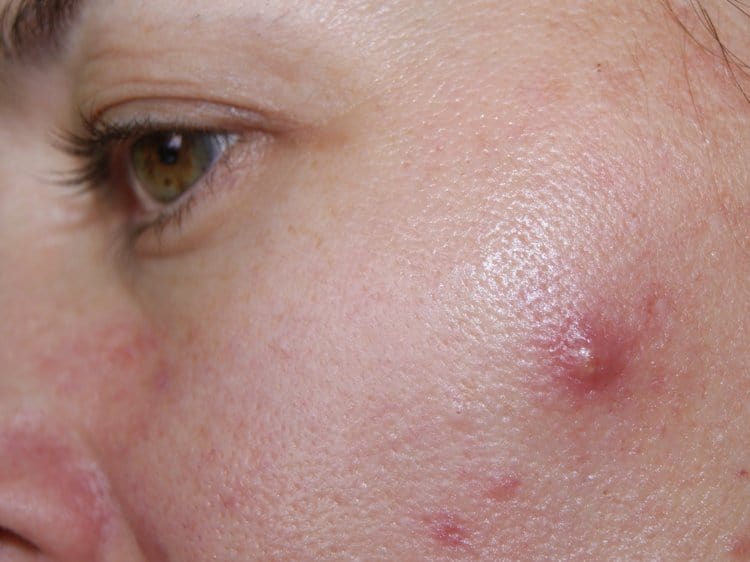
The most common signs and symptoms of cystic acne include:
- Blackheads as a result of open plugged pores
- Solid painful nodules under the skin
- Depressions on the skin
- Darks scars and marks
- Large painful pus-filled lesions
- Whiteheads as a result of plugged pores.
- Red and tender bumps on the skin
How is cystic acne diagnosed?
Diagnosis of cystic acne is mainly by visual inspection of the skin by a qualified skin expert better known as a dermatologist.
What are the treatments and medications for cystic acne?
For a severe case, you will need to see a dermatologist to prescribe medications that are stronger and specific to your acne. Over the counter acne treatments are usually mild and may not be able to fully clear your skin.
Treating cystic acne may require combined therapy so as to have the results in the shortest time possible. Here are the most effective treatments for cystic acne.
1. Antibiotics
Your dermatologist may prescribe oral antibiotics if your acne is severe and covers most part of your skin. Antibiotics work by fighting bacteria and inflammation that is the leading cause of cystic acne.
Antibiotics are used for a short term to prevent resistance, but in most cases, your doctor will recommend isotretinoin when antibiotics are not working.
You may notice the following side effects when taking antibiotics. However, the effects are mild but always talk to your doctor if they worsen:
- Nausea
- Abdominal discomfort
- Vomiting
- Diarrhea
2. Isotretinoin
Also known as Accutane, isotretinoin is a powerful anti-acne medication. It is often considered after all other acne treatments have failed. This drug is basically a powerful vitamin A derivative.
- It is sold in tablet form and is prescribed a tablet a day
Research has shown that about 80 percent of those who took it to have major improvements after 4 months. Even though, this drug is associated with several side effects as listed below:
- Triggers mood disorders
- Constant headaches
- Muscle and joint pain
- Blood in urine
- Skin inflammation
- Dry lips and eyes
- Abdominal pain
3. Topical retinoids
Topical retinoids are also derived from vitamin A just like isotretinoin. Even though, they are not as powerful as isotretinoin.
These creams work by unplugging the skin follicles to get rid of bacteria and dirt causing acne. Topical retinoids are available in creams, lotions, and gels.
Cystic acne responds well to the following topical retinoids:
- Adapalene
- Retin –A
- Tazorac
- Differin
Use of this treatment can result in peeling of the skin, it is nothing to worry about, the effects are not long- lasting. You will notice that the peeling stops after using the treatment for some time.
4. Oral contraceptives
What makes oral contraceptives effective in treating acne? One cause of acne is hormonal fluctuations related to the menstrual cycle. The oral contraceptive comes in handy in controlling the hormones to reduce and prevent the occurrence of acne.
Because oral contraceptives may not be suitable for everyone, your doctor may have to take your lifestyle history and perhaps run some blood tests. Talk to your doctor about using the contraceptives if you are planning to get pregnant.
5. Steroids
A steroidal injection is another common treatment for acne. These injections are made directly to the cyst on the skin to help reduce inflammation and prevent further scarring.
This kind of treatments has side effects that are not long-lasting. Your doctor may also opt to drain pus from large cysts.
6. Benzoyl peroxide
Bezoyl peroxide is available in several strengths depending on acne severity. It is available as an over the counter Treatment (OTC).
Benzoyl peroxide works by breaking the acne cycle that includes both the whiteheads and blackheads.
This treatment is also available in water-based and alcohol-based formulas you doctor will help you get one that is suitable for you depending on your skin type.
The alcohol benzyl peroxide formulas are often drying thus recommended for people with oily skin. Benzoyl peroxide products are to be used twice daily for better results. The most common side effects are skin irritation which often subsides after some time of use.
Are there home remedies for cystic acne?
Here are the most effective cystic acne home remedies:
1. Aloe vera For Cystic Acne
Aloe vera leaves produce a clear gel, the plant is usually found in tropical areas. The gel from the leaves contains powerful anti-inflammatory compounds that help heal wounds rashes and other skin-related conditions.
How to use
- Take one leave, wash it clean and scrape the gel out of the leave with a spoon
- Apply the gel directly to the clean skin
- Do not wash off, leave to dry and moisturize your face afterward.
- Repeat this at least 2 times daily for good results
- You can buy aloe vera gel from stores if you can’t get the plant itself. However, make sure that it is pure without additives.
2. Witch hazel
Witch hazel is an extract of the northern American witch hazel scrub. The tannins contained in witch hazel make it a powerful antibacterial and anti-inflammatory compound. For this reason, it is used to treat several skin-related conditions such as dandruff and eczema.
Witch hazel is also effective in treating cystic acne when used regularly as instructed below.
- Take one tablespoon of witch hazel and add into a cup of water in a pan.
- Boil the mixture after soaking it for 30 minutes.
- Reduce the heat and simmer for about another 10 minutes.
- Remove the mixture from the pan and sieve
- Let it cool, store the liquid in a tightly sealed container.
- Apply this solution using a ball of cotton wool at least two times daily.
There are so many witch hazel containing products sold commercially. however, it is important to note they lack the tannins, the active compounds because they are usually lost in the distillation and purification process.
3. Green tea
Green tea is an excellent anti-oxidant. It contains a compound called epigallocatechin-3- gallate that is effective in reducing sebum production and fighting acne-causing bacteria.
It is easier to make your pure green tea at home as shown here:
- Add green tea in boiling water for about 3-5 minutes
- Allow the tea to cool
- Use a cotton ball to apply the solution to your skin
- Allow your skin to completely dry and rinse with warm water.
The remaining tea leaves can be added to honey to make a mask. Drinking green tea regularly will help in the detoxification of blood hence a clear skin.
4. Honey cinnamon mask
Cinnamon and honey when combined, make powerful antioxidants. Honey and cinnamon contain strong antibacterial properties. They also help reduce inflammation on the skin.
How to make a cinnamon honey mask
- Add two tablespoon of honey a tablespoon of cinnamon and mix to form a paste
- Apply this paste to the skin after cleaning it thoroughly.
- Rinse the mask after it has dried and dry up your face using a clean towel.
5. How to Treat Cystic Acne With Tea tree oil
Tea tree oil is well known for its antimicrobial and anti-inflammatory abilities. Tea tree oil is gentle on the skin and does not cause irritation and burning.
The oil is potent and therefore needs to be diluted before use:
- Mix one part of tea tree oil with 8 parts of water.
- Using a ball of cotton wool, swab into the mixture and apply on the affected areas of the skin.
- You may apply a moisturizer if needed (These are the best moisturizers to buy).
- Repeat the process at least twice daily for better results.
Helpful tips for dealing with cystic acne
While in the process of applying a few of these cystic acne treatments, take into account the points listed below to help you eradicate cystic acne faster.
1. Exfoliate Your Skin Regularly
Exfoliation is the process of removing the top layer of dead skin. You can use a scrub or use a small brush for that purpose. Exploitation helps combat acne by removing dead skin cells that clog pores resulting in the sebum build-up.
2. Avoid sugary foods
Processed foods and those rich in sugar elevate levels of the hormone insulin which in return increases sebum production. It is, therefore, important to steer clear of bread, cakes, and soft drinks. Asides the skin, these foods are not too good for your eyes. Instead eat natural foods with a low glycemic index such as vegetables, fruits, and legumes.
3. Reduce stress
The stress hormone cortisol may increase the production of sebum and skin inflammation hence worsening acne. Stress can also slow the wound healing process by a great extent. Try relaxing techniques such as getting enough sleep, meditating, exercising and practicing yoga.
4. Exercises
Exercises help improve blood circulation. The increase in the flow of blood helps nourish the skin cells and this may help speed up the wound healing process.
Exercises also help regulate hormones. It is recommended that adult exercises for about 40 minutes daily.
5. Hygiene
Pillowcases and towels touch your face daily. To help reduce chances of irritation, avoid washing these items with strong detergents. Always opt for natural cleaning agents. It is also adviced that you change pillowcases and towels often so that to prevent the spread of bacteria.
Getting rid of cystic acne scars
There are several treatments that can help you get off post cystic acne scars. Some of the most common and effective scar treatments include:
- Skin Resurfacing (Complete guide to skin resurfacing)
- Chemical peels
- Microneedling
Just five chemical peels are able to clear cystic acne scars. There are also some treatments such as microdermabrasion cause less injury to the skin and work fast to heal acne scars within a few weeks into treatment.
Subscision is an invasive procedure that is done to get rid of severe acne scars. The procedure involves a loosening of scars by use of the needle in order to allow the skin to regenerate back.
In conclusion, Cystic acne may cause you to worry more. Fortunately, you are not alone, there are several treatments available for even the worst-case scenario of acne.
However, here is the catch, we advise that you consult your dermatologist before you start on any kind of treatment. Your doctor is able to tell the type of your skin and specific treatment for your case.
We hope you found this article helpful, let us know what your thoughts are, in the comment section below.


